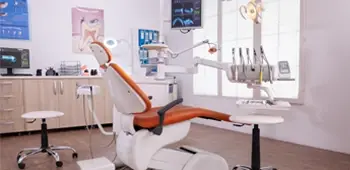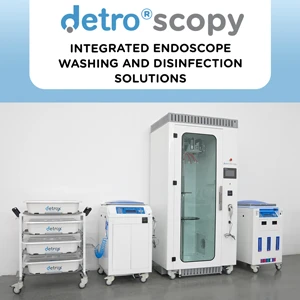The Right Equipment Investment in the Health Sector: Which Factors Should Be Considered?
Hospital procurement plays a strategic role, not only to meet current needs, but also to optimise long-term costs and maximise patient safety. Healthcare providers have to make the right equipment investments amidst an increasingly complex choice of technologies and products. So, what factors should be considered when choosing the right equipment for hospitals? In this article, we will examine the key factors to consider when determining the right equipment investments in the healthcare sector.
Quality and Reliability
In the healthcare sector, quality forms the basis of safety and patient satisfaction. The reliability, faultless operation and durability of the equipment used in hospitals are critical for both patients and healthcare staff. The fact that the equipment you are considering purchasing comes from reliable brands, has quality certificates and has a referable track record are important factors affecting your investment decisions. In the long term, equipment that reduces maintenance costs, minimises failures and maintains its functionality for years provides cost-effective solutions.
Sustainability and Environmentally Friendly Products
Today, sustainability is recognised not only as a trend but also as an understanding that has become mandatory in healthcare. Products with high energy efficiency, made of environmentally friendly materials and biodegradable products should be preferred. Sustainable equipment and disinfection products not only do not harm the environment, but can also save costs in the long term. Choosing biodegradable products, especially in cleaning and disinfection materials, helps hospitals reduce their environmental footprint by offering an environmentally sensitive approach.
Long Term Cost Effectiveness
The cost of equipment is not only limited to the purchase phase. Another important factor that healthcare providers need to consider is the maintenance and operating costs of the product. The durability of the equipment, easy maintenance processes and energy consumption seriously affect your costs in the long run. A product with a lower purchase cost can be expensive in the long run due to high maintenance or energy consumption costs. Therefore, equipment that has a high initial cost but stands out with its durability and efficiency may be a better investment for healthcare organisations.
Patient Safety and Hygiene Standards
The equipment used in hospitals is of great importance for patient safety. Devices that provide sterilisation, disinfection and hygiene conditions at maximum level minimise the risks of infection. Especially the instruments and devices used in surgical interventions directly affect patient health with their compliance with hygiene standards. Devices that prevent the spread of infections, strengthen hospital hygiene and provide a safe working environment for healthcare personnel should be preferred. Quality disinfection devices and sterilisation products play a vital role in ensuring infection control in hospitals.
Technological Compatibility and Innovation
The technologies used in the health sector are constantly evolving. This situation necessitates hospitals to invest in equipment that is compatible with technology and offers solutions for the future. Devices that are advanced, support digital integration and are compatible with smart systems can improve operational efficiency while also leading to better outcomes for patients. Such innovative devices can optimise care processes, increasing both patient satisfaction and healthcare staff productivity.
Ease of Use and Ergonomics
Considering the intense workload of healthcare workers, the ease of use of the equipment provides a great advantage. Complex, difficult-to-use devices can cause personnel errors and loss of time. Therefore, user-friendly devices with ergonomic design should be preferred. In addition, maintenance and cleaning processes of the equipment should be practical and unnecessary time wasting of the personnel should be prevented.
Seller Reliability and Support Services
When purchasing equipment, the quality of the products as well as the reliability of the vendor is an important factor. Working with vendors that offer special solutions for the health sector and provide technical support and maintenance services ensures that you get quick solutions in case of possible problems. The customer service, warranty coverage and technical support facilities of the vendor company are among the critical factors to be considered during the purchasing process.
Supply Chain and Logistics Ease
Supply chain management, which is critical for hospitals, can make a big difference, especially in emergencies. Timely delivery of equipment, fast and easy supply of spare parts ensure that hospital operations continue without interruption. The support and flexibility provided by the vendor company in logistics processes is one of the factors that directly affect purchasing decisions. Investing in the right equipment in the healthcare sector requires considering many factors such as patient safety, efficiency and sustainability, not only in terms of cost. Equipment that is long-lasting, of high quality and compliant with hygiene standards helps hospitals to deliver healthcare services at the highest level, while at the same time optimising costs. Therefore, taking the above-mentioned factors into account when making purchasing decisions plays a major role in the success of hospitals.






















